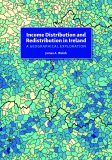
Income Distribution and Redistribution in Ireland A Geographical Exploration by Professor Emeritus Jim Walsh 2022
The book provides for the first-time a multi-scalar exploration of the complex geographical distribution of household incomes in Ireland, and it also explores the policy implications for regional and local development.
It is “a landmark contribution to the international literature on uneven regional and local development ……..and a model of meticulously executed research” Professor Ron Martin, University of Cambridge. To download a copy of this book please click here
Income Distribution and Redistribution in Ireland A Geographical Exploration
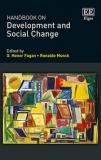
Handbook on Development and Social Change, by G. Honor Fagan, Maynooth University and Ronaldo Munck, Dublin City University, Ireland 2018
This Handbook provides an accessible critical review of the complex issues surrounding development and social change today. With chapters from recognized experts, examining economic, political and social aspects, and covering key topics and developing regions, it goes beyond current theory and sets out the debates which will shape an approach better suited to the modern world.
For further information please visit Publishers Website.
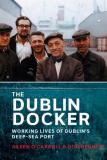
The Dublin Docker: Working Lives of Dublin's Deep-Sea Port, by Aileen O'Carroll, Maynooth University and Don Bennett, (formerly UCD), 2017
As a port city, Dublin owes much to the labourers who strove against the heavy-duty tide of imports and exports; a league of thousands who were hired on a day-to-day basis for generations, defining the bustle of Dublin city centre – a cornerstone of the urban industrial working class in Ireland. The Dublin Docker is a sumptuously illustrated history that determines the dockers’ and stevedores’ importance as an industrial subculture within the Dublin that they navigated. The authors excavated the archive of the Dublin Dockworkers Preservation Society to discover a wealth of photographs, spanning the mid-nineteenth century to the 1970s, that capture the dockers’ arduous labour and the energy of Dublin port. These evocative images bring this beautifully designed social history to life, complementing the inimitable voices revealed in interviews with the dockers themselves. How they negotiated working hours and pay, the changes that came with epochal events – the Dublin Lockout, the First World War, the Easter Rising and War of Independence – and the innumerable myths and ‘dark stories’ that shrouded their image: The Dublin Docker is a history of the dockers and their deep-woven connection to the city.
For further information please visit Publishers Website.
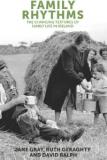
FAMILY RHYTHMS: The Changing Textures of Family Life in Ireland by Jane Gray, Maynooth University, Ruth Geraghty, Centre for Effective Services, (formerly Maynooth University), and David Ralph, Trinity College Dublin (2016)
Family Rhythms is the first textbook of its kind to offer a comprehensive introduction to family studies through an explicit focus on the Irish experience. It draws on original in-depth interviews with more than two hundred Irish people of different ages to illustrate contemporary theoretical ideas and empirical scholarship on family life. With chapters on childhood, adolescence, parenting and grandparenthood, the book shows the resilience of families in different social and historical contexts
For further information please visit Publishers Website.
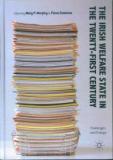
THE IRISH WELFARE STATE IN THE TWENTY-FIRST CENTURY: Challenges and Change by Mary P. Murphy (Maynooth University) and Fiona Dukelow (University College Cork), 2016
This book provides a critical and theoretically-informed assessment of the nature and types of structural change occurring in the Irish welfare state in the context of the 2008 economic crisis. Its overarching framework for conceptualising and analysing welfare state change and its political, economic and social implications is based around four crucial questions, namely what welfare is for, who delivers welfare, who pays for welfare, and who benefits. Over the course of ten chapters, the authors examine the answers as they relate to social protection, labour market activation, pensions, finance, water, early child education and care, health, housing and corporate welfare
For further information please visit The Irish Welfare State in the Twenty-First Century.
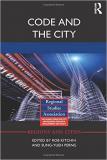
CODE AND THE CITY (Regions and Cities) by Rob Kitchin and Sung-Yueh Perng, Maynooth University (2016)
Software has become essential to the functioning of the cities. It is deeply embedded into the systems and infrastructure of the built environment and is entrenched in the management and governance of urban societies. Software-enabled technologies and services enhance the ways in which we understand and plan cities. It even has an effect on how we manage urban services and utilities. Code and City explores the extent and depth of the ways in which software mediates how people work, consume, communication, travel and play.
For further information please visit Code and the City
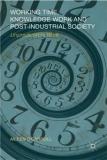
WORKING TIME, KNOWLEDGE WORK AND POST-INDUSTRIAL SOCIETY: Unpredictable Work by Aileen O'Carroll, Maynooth University (2015)
We are living in the age of imagination and communication. More than ever before, peoples' work requires them to think and talk. This book is about the new ways time is experienced and organised in post-industrial workplaces. Aileen O'Carroll argues that the key feature of working time within information technology, and other workplaces, is unpredictability. Working Time, Knowledge Work and Post-Industrial Society uncovers the mechanisms and processes by which labour processes and political economy create and maintain a working culture of unpredictability. This is a culture that seeks to insert acceptance of unpredictability as a new 'standard' by which working, and by default, non-working livers, are organised.
For further information please visit: Publishers Website, Personal blog -www.fringethoughts.org
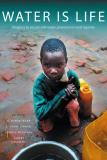
WATER IS LIFE: Community-Based Research for Sustainable Safe Water in Rural Uganda by G. Honor Fagan (editor) Maynooth University, Suzanne Linnane (editor), Kevin G. McGuigan (editor), Albert Rugumayo (editor), (2015)
A safe, adequate water supply within easy reach is still a dream for many people living in rural Africa. This book examines why such a basic service is not yet universally available by studying in detail one particular region of rural Uganda. What is the experience of women and children who have responsibility for fetching enough water for drinking, washing, cooking and feeding livestock? Are the village water committees run effectively? Is the policy and service delivery framework at national, regional and community level working to support borehole repair and maintenance? Can technical solutions such as SODIS and rooftop rainwater harvesting be both effective and gain local acceptance? Can GIS engage local people in gathering and using relevant data? Water is Life also studies the hydro-geological realities that present challenges to groundwater supply, and considers how climate change is likely to affect water supplies.
For more information please visit: Publishers Website
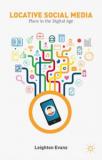
LOCATIVE SOCIAL MEDIA: Place in the Digital Age by Leighton Evans, Maynooth University (2015)
Leighton Evans' first book is a great achievement and a very useful addition to the literature, combining theoretical rigour with rich empirical material.
For more information please visit: Publishers Website
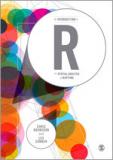
An Introduction to R for Spatial Analysis and Mapping by Chris Brunsdon, Maynooth University and Lex Comber, University of Leicester (2015)
This book provides an introduction to the use of R for spatial statistical analysis, geocomputation and the analysis of geographical information for researchers collecting and using data with location attached, largely through increased GPS functionality.
For more information please visit: Publishers Website
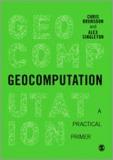
GEOCOMPUTATION A Practical Primer by Chris Brunsdon, Maynooth University and Alex Singleton, Liverpool University (2015)
This book provides highly applied and practical discussions of visualisation and exploratory spatial data analysis, space time modelling, spatial algorithms, spatial regression and statistics, enabling interactions through the use of neogeography.
For more information please visit Publishers Website
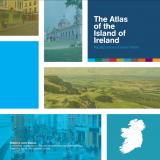
THE ATLAS OF THE ISLAND OF IRELAND - Mapping Social and Economic Patterns by Justin Gleeson, Maynooth University (2015)
This book principally maps census data available in both Ireland and Northern Ireland. The Atlas of the Island of Ireland contains hundreds of socio-economic variables at the Small Area (SA) level. This atlas has been developed under the Evidence-Based Planning theme of the Ireland Northern Ireland Cross-border Cooperation Observatory (INICCO-2) CrosSPlaN-2 funded research programme which responds to the need for sustained support to territorial cooperation in the Irish border region.
For further information please visit www.iclrd.ie
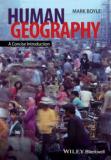
HUMAN GEOGRAPHY - A Concise Introduction by Mark Boyle, Maynooth University (2014)
Using the story of the "West and the world" as its backdrop, this book provides for beginning students a clear and concise introduction to Human Geography, including its key concepts, seminal thinkers and their theories, contemporary debates, and celebrated case studies.
For more information please visit Publishers Website
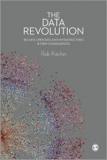
THE DATA REVOLUTION by Rob Kitchin, Maynooth University (2014)
This book provides a synoptic overview of big data, open data and data infrastructures, an introduction to thinking conceptually about data infrastructures, data analytics and data markets. It provides a critical discussion of the technical shortcomings and the social, political and ethical consequences of the data revolution and an analysis of the implications of the data revolution to academic, business and government practices.
For more information please visit Publishers Website
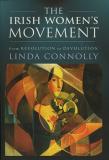
THE IRISH WOMENS REVOLUTION by Linda Connolly, Maynooth University (2003)
This superbly incisive, comprehensive history of the Irish women’s movement from the 1860s to the twenty-first century – appearing for the first time in paperback – shows how a network of constituent organizations and individuals was transformed into an engine of social change.
While feminism is a major intellectual and political tradition in Ireland, it has been misrepresented and misunderstood in mainstream Irish studies. This survey of key historical and contemporary perspectives redresses that imbalance. It demonstrates how the women’s movement fundamentally challenged established interpretations of the way in which modern Irish society has evolved over time, creating new theoretical directions in Irish studies.
For more information please visit Publishers Website

